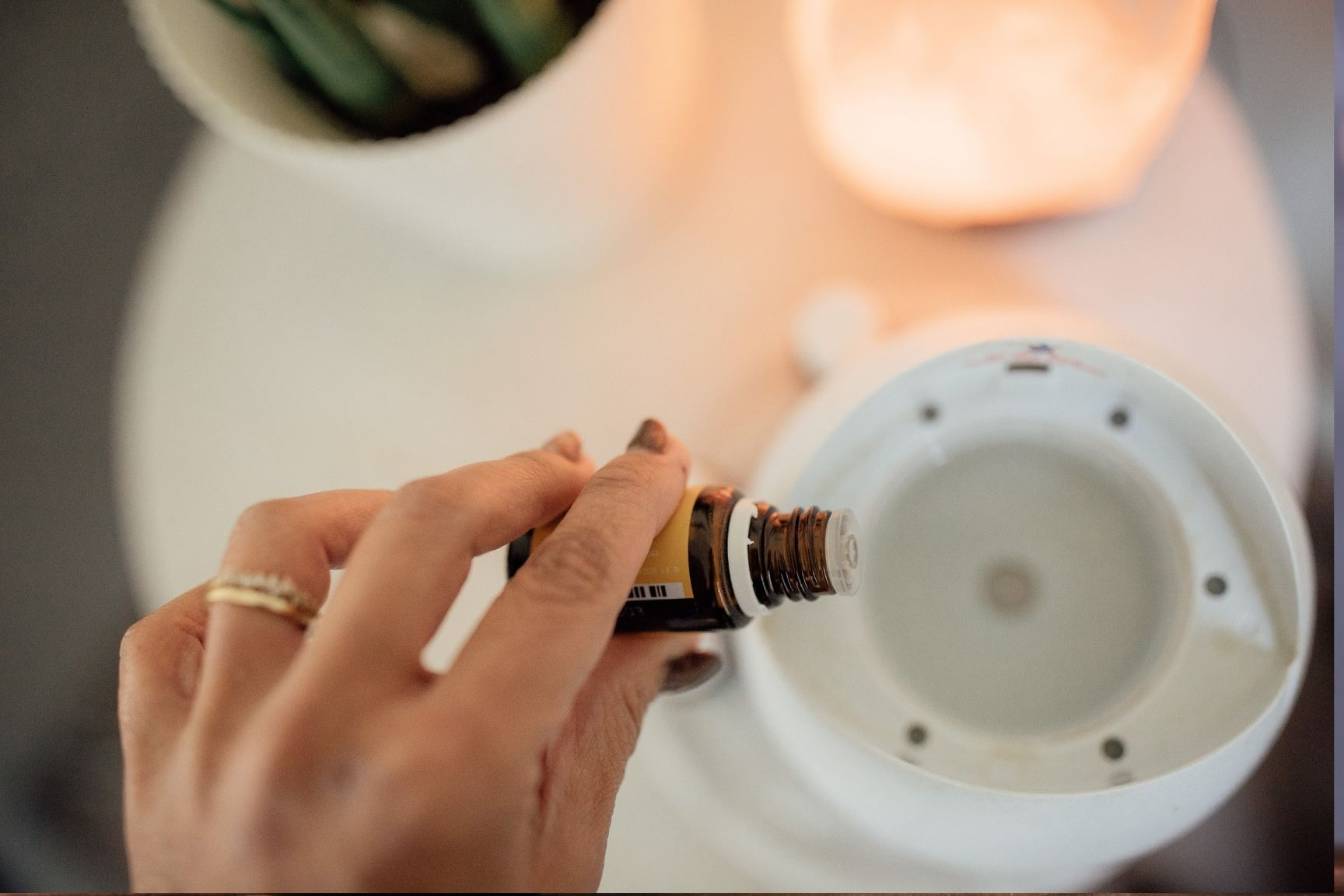Table of Contents
what does a diffuser do?
The diffuser is a device that breaks down and disperses essential oils into a room so that the user may enjoy the calming and medicinal effects of aromatherapy. Which include improving sleep, controlling pain, and reducing stress. Proponents for Aromatherapy diffusion claim an over better quality of life through the use of the diffuser.
Diffusers come in 3 different types:
1. Evaporative Diffuser
A Evaporative diffuser consists of a small fan and a pad that you drop essential oils on. The fan gently blows across the essential oils so that they evaporate into the atmosphere.
2. Ultrasonic diffuser
Can you use a diffuser as a humidifier?
In the case of an ultrasonic diffuser the answer is yes. Ultrasonic diffusers operate by the vibration of water and essential oils combined.
Can you use diffuser without oil?
An ultrasonic diffuser without the essential oils is simply an excellent ultrasonic humidifier.
3. Nebulizer diffuser
The nebulizer diffuser is the most sophisticated type of diffuser. It is also simultaneously the most effective and expensive to use. The reason is that uses the most oil of all three types.
What does a diffuser do in a room?
A diffuser is simply a tool to be able to enjoy the benefits of different essential and aromatherapy oils. Which are many.
Some benefits of diffusing essential oils in a room include:
1 Reduce stress and Anxiety
2. Better sleep
3. Appetite suppressant
4. Air purification
5. Decongestant and cold relief
6. Insect and mosquito repellent
7. Improve memory and Mental Clarity
8. Relieve Headaches
9. Hair growth
10. Humidifier
1. Reduce Stress and anxiety
Stress is a health symptom we can all relate to in this modern world of abrupt changes.
Stress and anxiety can result in having issues both mental and physical.
Aromatherapy can be used as a relaxation tool to help boost a feeling of calmness and ease.
A. Lavender essential oil is proven to lower your blood pressure and your heart rate. One of the most common and popular essential oils for stress, lavender can ease your nerves and promote a more restful night sleep.
B. Ylang ylang is a essential oil that is extracted from the Cananga tree rooted in Indonesia.
This essential oil is known to help improve your mood and help relieve depression.
And like lavender, it can help lower your heart rate and ease tensions related to stress and anxiety.
2. Better sleep
No doubt getting a good night’s rest is essential to your health and feeling positive and alive.
Aromatherapy has been used for centuries to promote a better night’s sleep. According to the US National Library of Science, aromatherapy is more effective at improving sleep quality than acupuncture.
A. Lavender tops the list I’ll be essential oils that can help promote sleep.
Lavender is not only help calm your nerves, it also has a sedative effect.
It has been shown to not only help you fall asleep faster but stay asleep longer.
B. Vanilla essential oil is a sweet scent they can also have a sedative effect on your nerves and can help relieve restlessness.
 3. Appetite suppressant.
3. Appetite suppressant.
Aromatherapy essential oils can also be used to help suppress your appetite and give you energy.
A. Grapefruit essential oil works as a help for weight loss because of its ability to help activate enzymes that work to reduce body fat.
B. Ginger
Ginger essential oil can help with digestion support and help you absorb nutrients easier. Dropping a couple of drops of grapefruit and Ginger in your tea or water is also a great way to get the benefits of these essential oils.
4. Air purification
A diffuser is an excellent way to disperse antibacterial oils through the air that are capable of reducing allergens and mold spores.
When you consider the fact that most spray fragrances actually add dangerous vocs to the air and only mask the air and do nothing to reduce indoor air pollution, essential oils or a landslide.
According to PubMed “essential oils have a great potential in the field of Bio medicine is late effectively destroy several bacterial fungal and viral pathogens”
A. Peppermint essential oil
Peppermint oil is known to have any bacterial properties. It is not only excellent as a means of air purification, it is also good as a cough suppressant.
B. Tea tree oil
Tea tree oil has been researched and shown to be able to destroy flu viruses in the air.
5. Decongestant and cold Relief
Eucalyptus is the number one essential oil to add to diffuser when you have a cough.
Eucalyptus is found in most chest rubs and is universally considered an excellent way to soothe your airways and relax a cough. But it is not the only game in town.
A. Oregano oil
Adding oregano oil to a diffuser is an excellent way to fight off a cold and flu bug. The reason is it contains Carvacrol.
Carvacrol is a natural antibiotic.
B. Rosemary oil
Rosemary oil contains something called Cineole. Research has concluded that Cineole actively reduces a call in as little as four days.
6. Mosquito and insect repellent
Most everyone has heard of citronella candles and sure to keep them around for a summertime BBQ.
A. Citronella essential oil is the same mosquito repellent that you can buy in the candle form. Citronella is known to ward off mosquitoes as well as fleas, lice, and a whole host of other insects.
B. Lemon eucalyptus
The center for disease control has put their stamp on lemon eucalyptus. According to the CDC, lemon eucalyptus can be used as an effective repellent for mosquitoes.
7. Improve Memory and mental clarity
Memory is something we all value and something we usually take for granted till it starts to fade.
Aromatherapy has been shown to help increase mental clarity and focus as well as stimulate the memory.
A. Frankincense oil
Frankincense oil is a ancient remedy for just about every ailment under the sun.
It is also known to be and effective stimulate for the brain.
B. Peppermint is also a strong essential oil that can promote a sense of mental sharpness when inhaled deeply.
8. Headaches
Headaches can fall under the moniker of stress and anxiety. Stress can cause a whole lot of havoc on your health including headaches.
A. Peppermint oil is the number one essential oil for tension headaches. Because peppermint oil contains menthol, it has the potential to relax your muscles and relieve pain including headache and migraine pain.
B. Lavender oil
Lavender essential oil creates a soothing aroma that is known to be calming. It’s relaxing properties can help ease tensions in your neck and shoulders that can lead to headaches.
 9. Hair growth
9. Hair growth
Have you ever been in a situation where you could not wait for your hair to grow. Fortunately there are stimulants that can help your hair grow out faster and certain essential oils fall under that category.
A. Lavender oil has both antimicrobial and anti bacterial characteristics that can strengthen your scalp.
Though usually known as a essential oil to reduce stress and ease headaches, lavender oil has a unusual side effect helping hair grow faster.
B. Rosemary essential oil is similar in that it is usually promoted as a cough suppressant. But according to one study, rosemary oil is actually as effective as a hair growth stimulant is the popular over the counter hair stimulant Minoxidil.
10. Humidifier
You can’t forget about the fact ultrasonic diffuser doubles as a humidifier.
A humidifier is a must especially in the winter months when the climate is dry and the heater is going nonstop.
Not only will a humidifier help moisten your nasal cavities and make it easier to breathe, it will also add moisture to the dust in the air keeping it from floating in the ambient air that you breathe.
And that’s only a small part of the list that aromatherapy and diffusers can do to help improve your health.
A Diffuser combined with aromatherapy essential oils is an excellent way to improve the quality of your life.


 9. Hair growth
9. Hair growth